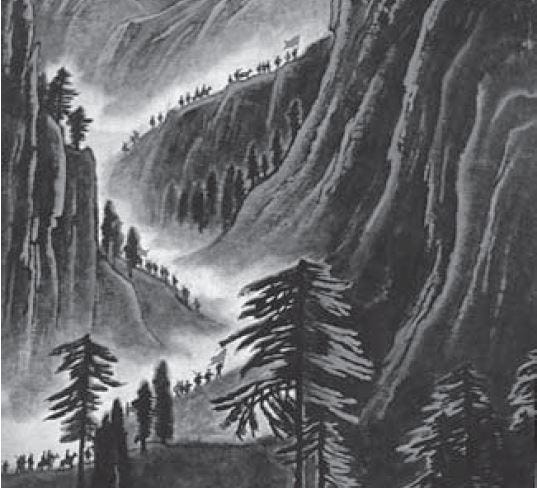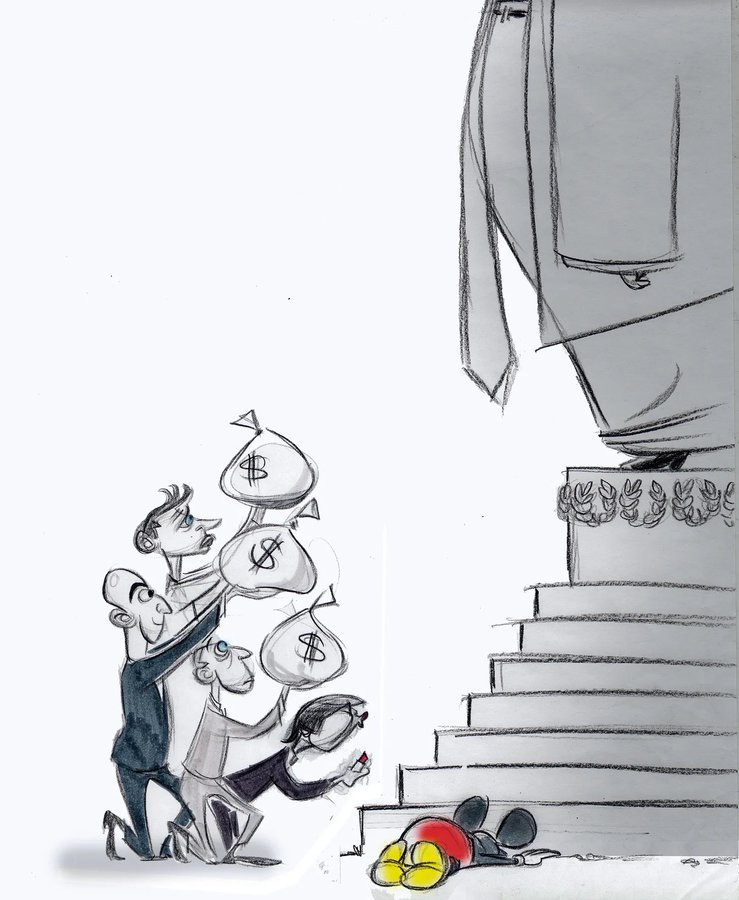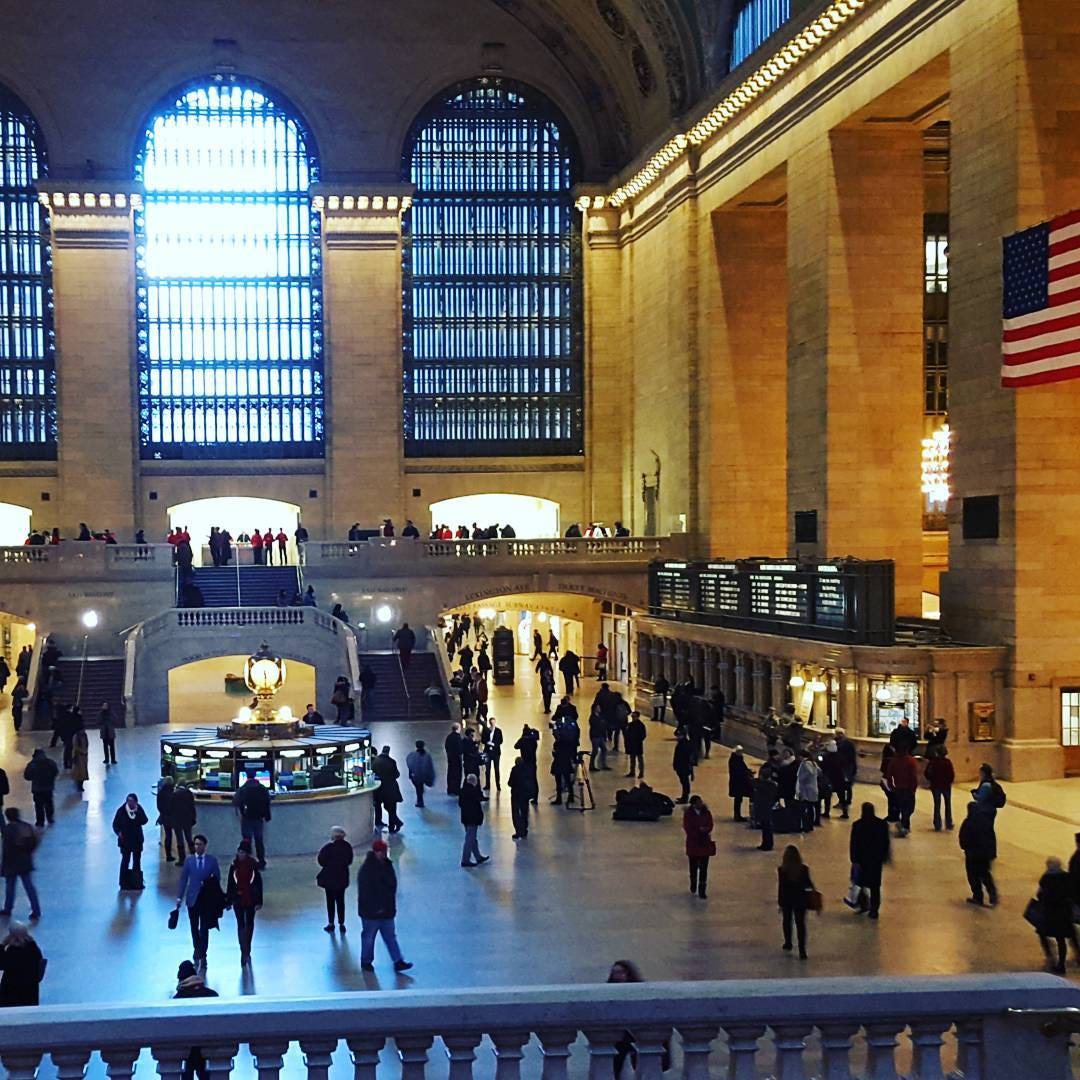I wrote not long ago about surrender (Know when to fold ‘em) but I was not suggesting that folding is the right choice. It depends on whether there are more hands to be dealt. And often it’s not a matter of surrender but of retreat—for a time.
After seeing the richest man in the world give a Nazi salute to the president of my country, surrender is not an option.1 (Watch it at The Telegraph, a conservative British newspaper.)
We shall defend our Island, whatever the cost may be, we shall fight on the beaches, we shall fight on the landing grounds, we shall fight in the fields and in the streets, we shall fight in the hills; we shall never surrender. . . . —Winston Churchill
That famous speech was given after the Allied retreat from France after Dunkirk, and it was 4 years before the Allied landed again in France on D-Day.
Hanging on too long can mean not only loss of life, as it does in wartime, but also missing the next train, the next opportunity, the next chance to move a vital piece or win a skirmish. What makes us hesitate to change course, to reassess, perhaps even to retreat for a while?
Risk of harm or loss. When we give up, there’s risk that something bad will happen anyway, or that we’ve give up something that might have worked out in the end.
Collateral damage. People stay married because it matters to other people, especially their children. When a business declares bankruptcy, employees lose their jobs.
Humiliation. It’s very hard to admit that things didn’t work out. And it’s particularly hard when there’s money at stake.
A web search about “surrender” turns up dozens of articles about surrendering to God, but what I am thinking of is what journalists are now referring to as “kissing the ring,” “boot licking,” and being a “surrender monkey.” Maybe that’s a bit like the urge to surrender to God? Just take a look at the tech titans. These guys are not models of “masculine energy.” They are nerds and wannabes, not athletes or soldiers. Watching them grovel makes me wonder if the desire for a strongman-daddy figure is more primal than we realized.2 Is this why Hitler was referred to more often than Jesus by authors in the Encyclopedia of Leadership?
On the other hand, too many of the US political representatives who are now The Opposition seem inclined to surrender, or to a disorganized retreat.3
The US football coach Vince Lombardi had a lot to say about winning, from the bog-standard “Winners never quit and quitters never win,” to “Winning is a habit. Unfortunately so is losing.”
We may need to fold sometimes. But we need to guard against the temptation to surrender by going AWOL from the fight. Our next meetup on Teams will focus on immediate steps we can take to connect, focus, and keep up our spirits.
Here is Bill McNeill on the power of myth in 1940:
Myths, moreover, are based on faith more than on fact. Their truth is usually proven only by the action they provoke. In 1940, for example, when Hitler had defeated France, the British public continued to support war against Germany partly because they "knew" from schoolbook history that in European wars their country lost all the early battles and always won the last. This faith, together with a strong sense of the general righteousness of their cause, and fear of what defeat would bring, made it possible for them to persist in waging war until myth became fact once more in 1945.
Clearly, without British actions in 1940, World War II would have followed a far different course. Russian and American resources might never have coalesced with Britain's to create the victorious Grand Alliance of 1945. Germany, in short, might have won. Yet no merely rational calculation of relative strengths and military capabilities in June 1940 would have supported the proposition that Great Britain could expect to defeat Hitler. Action, irrational in the short run, proved rational in the longer run. Myth is what bridged the gap, remaking the reality of June 1940 into the reality of May 1945.
And a book by John Kelly, an admirer of WHM's, Never Surrender: Winston Churchill and Britain's Decision to Fight Nazi Germany in the Fateful Summer of 1940.
The Resistance
It was serendipity that I started watching V - The Resistance a couple weeks ago. The series is about an alien invasion and it is dedicated to “all resistance movements.” In one of the early episodes, there’s a lot about the need to organize, and connect, to get on the same page with a consistent message. (In that case, “V for Victory” is the message. We need something a bit more refined than that today.)
I’ve since realized that stories of valor and resistance are everywhere. I thought of the poem “The Charge of the Light Brigade,” which I loved as a child. But that was a hopeless, misguided effort. The movie Glory is about another hopeless military effort, this one by the all-Black 54th Massachusetts Volunteer Infantry Regiment, but one that proved decisive in the US Civil War.
How about Star Wars, or Shawshank Redemption? I’m sure there are plenty to add to the list—novels and movies, biographies and memoirs, about heroic figures risking their lives, working against great odds, for what the rector at St Thomas Church called “peace, justice, and the common good.”4
Retreat to the mountains
I was talking to a colleague who’d moved to Vermont. “A good place to wait out the next four years,” he said. I agreed that there was comfort in not being too close to Washington DC, and to living in a state where civilized protections are likely to remain intact. “A retreat to the mountains,” I said, thinking of Mao Zedong and the Long March.
The story of the Long March is worth revisiting. Indeed, the eventual result of Mao’s success is perhaps not one to celebrate today, but it’s an instructive account of retreat leading to new strategies and new leadership. The image at the top of this letter comes from an ink drawing, Marching Through Lushan Pass at Sunset.”
Read (or download 3 pages - no charge, no registration required) “The Long March” from the Berkshire Encyclopedia of China.
And from Europe, we can look at what’s happening with tiers lieux, or third places. The concept has become part of government policy and is used extensively by community organizers. I was interviewed by the France Tiers-Lieux project for a book « Cahiers de recherche n°1 de l’Observatoire des tiers-lieux : À la recherche des tiers-lieux » and received the proof on Monday. Here are a few relevant paragraphs (English translation by Google is in the footnote) about the role of third places in politics, and resistance:
Le livre abordera également les enjeux politiques et l'importance des échanges d'idées. Si les gens ont des points de vue divergents, mais il est essentiel de maintenir le dialogue. Ray Oldenburg, lors de son dernier petit-déjeuner, était avec des partisans de Trump, lui ne l’était pas, mais il était toujours capable d'avoir une conversation amicale et plaisante avec ces hommes. Ce type d’échanges est crucial. Nous avons besoin de davantage d’espaces de discussions ouvertes et constructives, car c'est par le dialogue que nous pourrons résoudre les problèmes politiques actuels.
Les third-places jouent un rôle crucial dans un sens démocratique. Ils l’ont toujours fait, et dans le contexte actuel, ils pourraient représenter une solution essentielle, car ils permettent de réhumaniser les échanges. Aujourd'hui, nous faisons face à une forme de séparation, presque une diabolisation de la différence ou du désaccord, où ceux qui ont des points de vue différents sont perçus comme étant « mauvais » ou moins humains que nous, comme des personnes avec lesquelles il est impossible de communiquer. Pourtant ce n’est pas vrai. Dans la grande majorité des cas, les gens réussissent à communiquer et à trouver des terrains d’entente avec des personnes très différentes d’eux.
Nous avons également besoin d’espaces où des personnes partageant une philosophie similaire peuvent se rassembler, discuter librement et débattre. Car les défis auxquels nous faisons face sont profonds et complexes. Ce matin, j'écoutais un podcast sur le monde des entreprises, notre système et notre structure gouvernementale. Sont-ils vraiment ce dont nous avons besoin au XXIe siècle ? C’est le genre de discussions que l'on peut avoir dans les third-places, en buvant notre café du matin. Or je suis convaincue que c'est essentiel pour la démocratie, pour construire une manière de vivre commune et une société stable et durable dans le futur.5
Train Time
On Monday—Martin Luther King Jr Day as well as Inauguration Day—I traveled back to the Berkshires from New York City. While in New York, I took a lot of photos inside Grand Central Terminal for the new Substack Train Time podcast.
This might seem quixotic to launch this now, when federal money is not going to be flowing to rail projects in blue states (and probably not to any states—even though Amtrak is popular with red state senators). It’s a statement, I suppose, that reality doesn’t change with a new president. The case I and others have made for the revival of passenger rail is still valid. I see this as a chance to bring together a wider, younger coalition and to come up with fresh, practical plans. If you’re interested in infrastructure, transportation, and government spending, do feel free to join us at Train Time. The first podcast is short, an amusing account by author Simon Winchester of some of his train travels, including a trip from London to Hong Kong via Moscow.
Think the references to Hitler and Nazis are exaggerated? Kathy Guiffre, the sociologist I interviewed recently about third places, has made a video discussing the book The Nazi Seizure of Power: The Experience of a Single German Town 1930-1945.
Keep an eye on Senator Chris Murphy, and Rep Seth Moulton, and I’ll be calling out others who seem to have the right stuff for the days ahead.
I have not been to a church service in many years but went to St Thomas’s on Sunday. The rector prayed that the new US president would work for “peace, justice, and the common good.” Quite similar to the call made by another Episcopal priest the next day in Washington DC, to the dismay of the incoming president (gift link: Washington Post).
Translation by Google: The book will also address political issues and the importance of exchanging ideas. If people have divergent views, but it is essential to maintain dialogue. Ray Oldenburg, at his last breakfast, was with Trump supporters, he was not, but he was still able to have a friendly and pleasant conversation with these men. This type of exchange is crucial. We need more spaces for open and constructive discussions, because it is through dialogue that we can resolve current political problems.
THE third-places play a crucial role in a democratic sense. They have always done so, and in the current context, they could represent an essential solution, because they make it possible to rehumanize exchanges. Today we face a form of separation, almost a demonization of difference or disagreement, where those who have different points of view are seen as "bad" or less human than us, as people with whom it is impossible to communicate. However this is not true. In the vast majority of cases, people succeed in communicating and finding common ground with people who are very different from themselves.
We also need spaces where people with a similar philosophy can come together, freely discuss and debate. Because the challenges we face are deep and complex. This morning I was listening to a podcast about the business world, our system and our government structure. Are they really what we need in the 21st century? These are the kinds of discussions that can be had in third-places, while drinking our morning coffee. However, I am convinced that it is essential for democracy, for building a common way of living and a stable and sustainable society in the future.











I meant to include this, from https://karenchristensen.substack.com/p/the-stories-we-really-need-now:
And here is Bill McNeill, no paywall (but of course I’ll be glad to have you subscribe to this publication). The extract below sets out an important point about the power of myth:
Myths, moreover, are based on faith more than on fact. Their truth is usually proven only by the action they provoke. In 1940, for example, when Hitler had defeated France, the British public continued to support war against Germany partly because they "knew" from schoolbook history that in European wars their country lost all the early battles and always won the last. This faith, together with a strong sense of the general righteousness of their cause, and fear of what defeat would bring, made it possible for them to persist in waging war until myth became fact once more in 1945.
Clearly, without British actions in 1940, World War II would have followed a far different course. Russian and American resources might never have coalesced with Britain's to create the victorious Grand Alliance of 1945. Germany, in short, might have won. Yet no merely rational calculation of relative strengths and military capabilities in June 1940 would have supported the proposition that Great Britain could expect to defeat Hitler. Action, irrational in the short run, proved rational in the longer run. Myth is what bridged the gap, remaking the reality of June 1940 into the reality of May 1945.
And an admirer of WHM's book Never Surrender: Winston Churchill and Britain's Decision to Fight Nazi Germany in the Fateful Summer of 1940
https://www.simonandschuster.com/books/Never-Surrender/John-Kelly/9781476727981 by John Kelly.
Langston Hughes' description of his train trip into the eastern Soviet Union (I wonder as I wander--title) provides a point of view and an experience we do not often read/see. I loved it,)